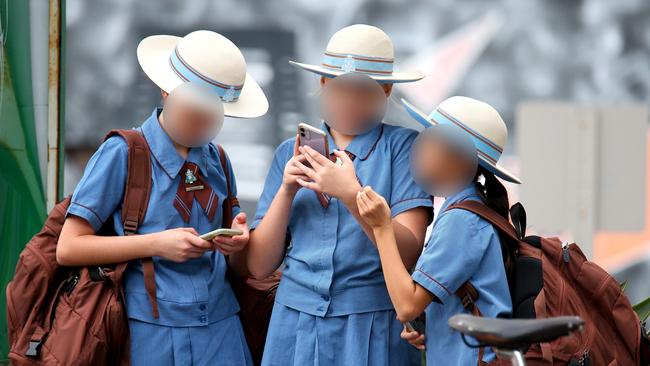Social media ban to begin testing
Testing with teenagers for Labor’s world-first ban of social media will begin in coming months, as parents and child safety advocates hail the passing of the new law as a ‘reclamation of childhood’.

Testing on teenagers for Labor’s world-first ban of social media will begin in coming months, as parents and child safety advocates hail the passing of the new law as a “reclamation of childhood”.
But experts say the government’s ban now sets a clear expectation that it heed calls for other substantive policies and funding to address the mental health crisis in adolescents and children across the country.
Anthony Albanese on Friday said the social media ban, passed with the support of the Coalition, was intended to reduce the harm being done to young people online and save lives.
“I’ve met with parents who have lost and buried their child. It’s devastating,” he said.
“We can’t, as a government, hear those messages from parents and say it’s too hard.”
The Heads Up Alliance, a group pushing for the ban, said in a statement that the passing of the legislation would ensure tech companies didn’t profiteer from children who were being done harm by their platforms.
“We are the first in the world to do this and when history reflects on the reclamation of childhood from the grips of social media, it will note that it began right here in Australia,” the statement said.
As part of the government’s plan to implement the ban – which it intends to have in place in about a year – live testing will be done on teenagers by the Age Check Certification Scheme.
The tests will take place in coming months and inform which technologies – including those collecting biometric data – work best to stop children under 16 gaining access to social media.
Following the end of the trial mid-next year, Labor intends to engage directly with tech platforms, such as Meta and X, to share the its findings and collaborate on a way to enforce a ban on under 16s by the end of the 2025.
But Meta, the parent company of Instagram and Facebook, argued there was a “lack of evidence” underpinning the legislation. “Naturally, we respect the laws decided by the Australian parliament,” a Meta spokesperson said in a statement.
“However, we are concerned about the process which rushed the legislation through while failing to properly consider the evidence, what industry already does to ensure age-appropriate experiences, and the voices of young people. Last week, the parliament’s own committee said the ‘causal link with social media appears unclear,’ with respect to the mental health of young Australians, whereas this week the rushed Senate Committee report pronounced that social media caused harm.”
While agreeing the evidence to support the mental health benefits of a social media ban were “weak”, leading Australian psychiatrist Patrick McGorry said that the legislation may force the hand of the tech platforms to ensure more safety online.
“If it forces platforms to produce safer versions of their platforms, that could be a good outcome,” he said.
But Professor McGorry, the founder of headspace, warned that the policy would fall short if the government didn’t accompany the ban with other policies.
“If you’re really worried about the severe youth mental health crisis there is a lot more you need to do,” he said. “This ban is not going to take effect for another year and even if the government is right and it does good, we’ve got hundreds of thousands of young people who need expert mental health now and are unable to access it.”








To join the conversation, please log in. Don't have an account? Register
Join the conversation, you are commenting as Logout